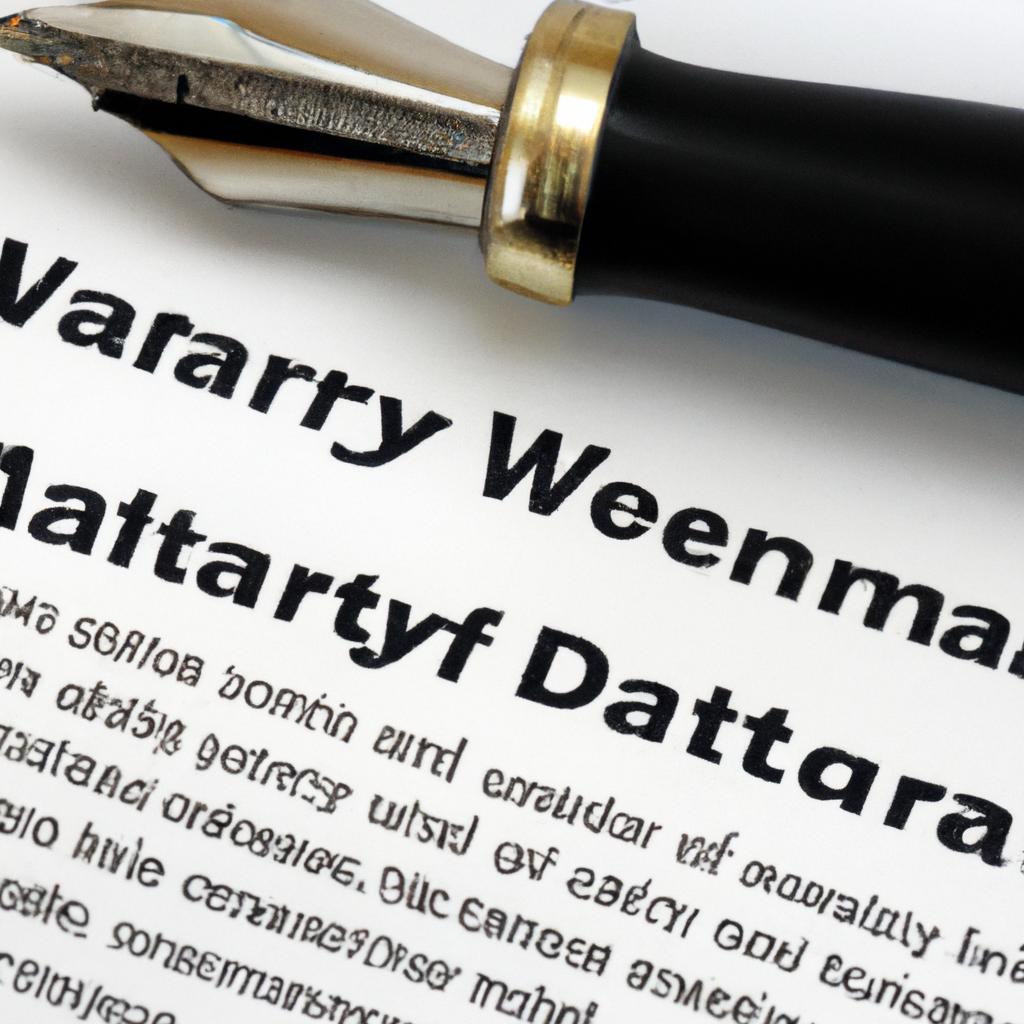When it comes to property ownership, the terminology can sometimes be confusing. In the realm of real estate law, terms such as warranty deed and deed are often used interchangeably, leading to misconceptions about their meanings. As experienced legal professionals at Morgan Legal Group in New York City, we specialize in estate planning, probate, elder law, wills, and trusts, and we are here to shed light on the distinction between a warranty deed and a deed in the context of property transactions. Let us guide you through the nuances of these essential legal documents to ensure you are well-informed and prepared for any property transaction.
Understanding the Difference Between a Warranty Deed and a Deed
When it comes to real estate transactions, is crucial. Many people often mistakenly use these terms interchangeably, but they actually serve different purposes and offer varying levels of protection.
A deed is a legal document that transfers ownership of a property from one party to another. It includes the names of the current and new property owners, a legal description of the property, and the signatures of both parties. On the other hand, a warranty deed not only transfers ownership but also guarantees that the property is free from any liens or encumbrances. This means that the seller promises to defend the buyer against any legal claims that may arise in the future.

Key Factors to Consider When Evaluating a Warranty Deed
In evaluating a warranty deed, it is important to consider several key factors to ensure that you are making an informed decision. One important factor to consider is the extent of the warranties provided in the deed. A warranty deed typically guarantees that the seller has clear title to the property and has the right to sell it. It also provides certain protections to the buyer in case any title issues arise in the future.
Another important factor to consider is whether the warranty deed includes any specific covenants or guarantees regarding the property. These covenants may vary depending on the jurisdiction and can provide additional assurances to the buyer regarding the condition of the property. It is crucial to carefully review these covenants to fully understand the extent of the seller’s obligations under the warranty deed.

How to Ensure Proper Title Protection with a Warranty Deed
When it comes to ensuring proper title protection with a warranty deed, it is important to understand the differences between a warranty deed and a regular deed. A warranty deed is a legal document that guarantees the grantor (seller) has the legal right to transfer the property to the grantee (buyer). This means that if any title issues arise after the sale, the grantor is responsible for resolving them.
Unlike a warranty deed, a regular deed does not offer any guarantees regarding the title of the property. This means that the grantee may be at risk of encountering title issues that could lead to disputes in the future. To ensure proper title protection, it is essential to use a warranty deed when transferring property ownership. By doing so, you can have peace of mind knowing that your title rights are protected.

Expert Recommendations for Utilizing Warranty Deeds in Real Estate Transactions
When it comes to real estate transactions, utilizing warranty deeds is crucial to protect the interests of both parties involved. A warranty deed is a legal document that guarantees the seller has the legal right to transfer ownership of the property and that there are no liens or encumbrances on the property. This provides the buyer with peace of mind knowing that they are receiving a clear title.
It is important to note that a warranty deed is not the same as a general deed. While a warranty deed guarantees the title, a general deed does not provide any guarantees. When entering into a real estate transaction, it is highly recommended to use a warranty deed to protect yourself from any potential legal issues in the future. Consult with a real estate lawyer to ensure that the warranty deed is properly drafted and executed to avoid any complications down the road.
Q&A
Q: Is the warranty deed the same as the deed?
A: Many people use the terms “warranty deed” and “deed” interchangeably, but they are not actually the same thing.
Q: What is a warranty deed?
A: A warranty deed is a type of deed that guarantees that the seller holds clear title to the property and has the right to sell it. It also provides protection to the buyer against any future claims on the property.
Q: What is a deed?
A: A deed is a legal document that transfers ownership of a property from one party to another. It can come in several different forms, including warranty deeds, quitclaim deeds, and special warranty deeds.
Q: Are all deeds warranty deeds?
A: No, not all deeds are warranty deeds. While warranty deeds provide the most protection to the buyer, other types of deeds may not offer any guarantees about the seller’s ownership of the property.
Q: Is a warranty deed necessary?
A: In many real estate transactions, a warranty deed is used to provide the buyer with peace of mind about the purchase. However, in some cases, a different type of deed may be used, depending on the specific circumstances of the transaction.
Q: Can a warranty deed be challenged?
A: While a warranty deed offers protection to the buyer, it is possible for the validity of the deed to be challenged in court. This is why it is important for both the buyer and seller to ensure that all the necessary steps are taken to properly execute the deed.
In Summary
In conclusion, while the warranty deed and the deed are often used interchangeably, it is important to understand that they are not the same thing. The warranty deed offers strong assurances to the buyer regarding the property’s title, while a deed simply transfers ownership. Knowing the difference between the two can help you make informed decisions when buying or selling property. So, next time you’re dealing with real estate transactions, make sure to have a clear understanding of what each document entails. Happy house hunting!


